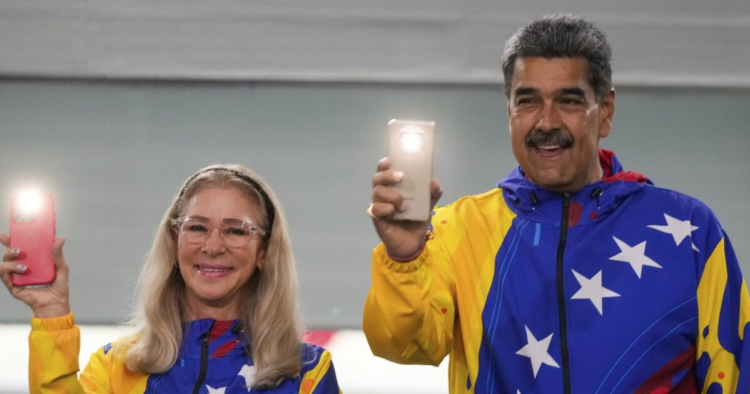On Sunday, President Nicolas Maduro declared victory in Venezuela’s presidential election, a result that has been widely disputed by the opposition. According to the National Electoral Council (CNE), which is largely seen as loyal to Maduro’s government, he won 51.2% of the vote. However, the opposition claims that the actual figures are significantly different, with Maduro receiving only around 30% of the votes and his rival, Edmundo Gonzalez Urrutia, getting 70%.
Maduro’s presidency has been marked by severe economic troubles and political unrest. Despite these challenges, the former bus driver has managed to retain power through a combination of strong-arm tactics and political maneuvering. His first term began in 2013 after the death of his mentor, Hugo Chávez, and since then, he has faced numerous crises, including a dramatic economic downturn and widespread shortages of basic goods.
Critics accuse Maduro of ruling with an iron fist, accusing him of using authoritarian methods to stay in power. Rights groups have reported widespread persecution of political opponents, with numerous arrests and disqualifications of rivals. The president’s popularity has been steadily declining due to the economic crisis, but he has continued to maintain control through extensive state-sponsored propaganda and intimidation.
Born in Caracas, Maduro is a self-described Marxist and Christian. His background includes a stint as a union leader on the Caracas metro and a political education in communist Cuba during the 1980s. Before becoming president, he served as the speaker of the National Assembly, foreign minister, and vice president.
Maduro has faced numerous challenges during his presidency, including a failed drone attack in 2018 and international sanctions. Despite widespread criticism and the non-recognition of his 2018 re-election by many countries, he has managed to stay in power by building strong ties with countries like China and Russia. These alliances have helped Venezuela stay afloat despite severe economic difficulties.
Relations with the U.S. and Opposition
Maduro has been adept at deflecting blame for Venezuela’s problems onto external forces, particularly the United States. He has continued to push anti-American conspiracy theories and has used these to justify his actions against domestic dissent. Although there was a brief easing of U.S. sanctions last year, these were reinstated in April after Maduro failed to meet agreed-upon conditions for fair elections.
To bolster his image and connect with the Venezuelan people, Maduro has embraced a unique public persona. He has introduced a cartoon character named Super-Bigote (Super Moustache) who is depicted as a superhero fighting against imperialism. Additionally, he has adopted the symbol of a fighting cock, “Gallo Pinto,” to portray himself as energetic and resilient compared to his older opponent.
As Venezuela continues to face significant economic and political challenges, Maduro’s controversial election victory only adds to the uncertainty surrounding the country’s future.

















Comments